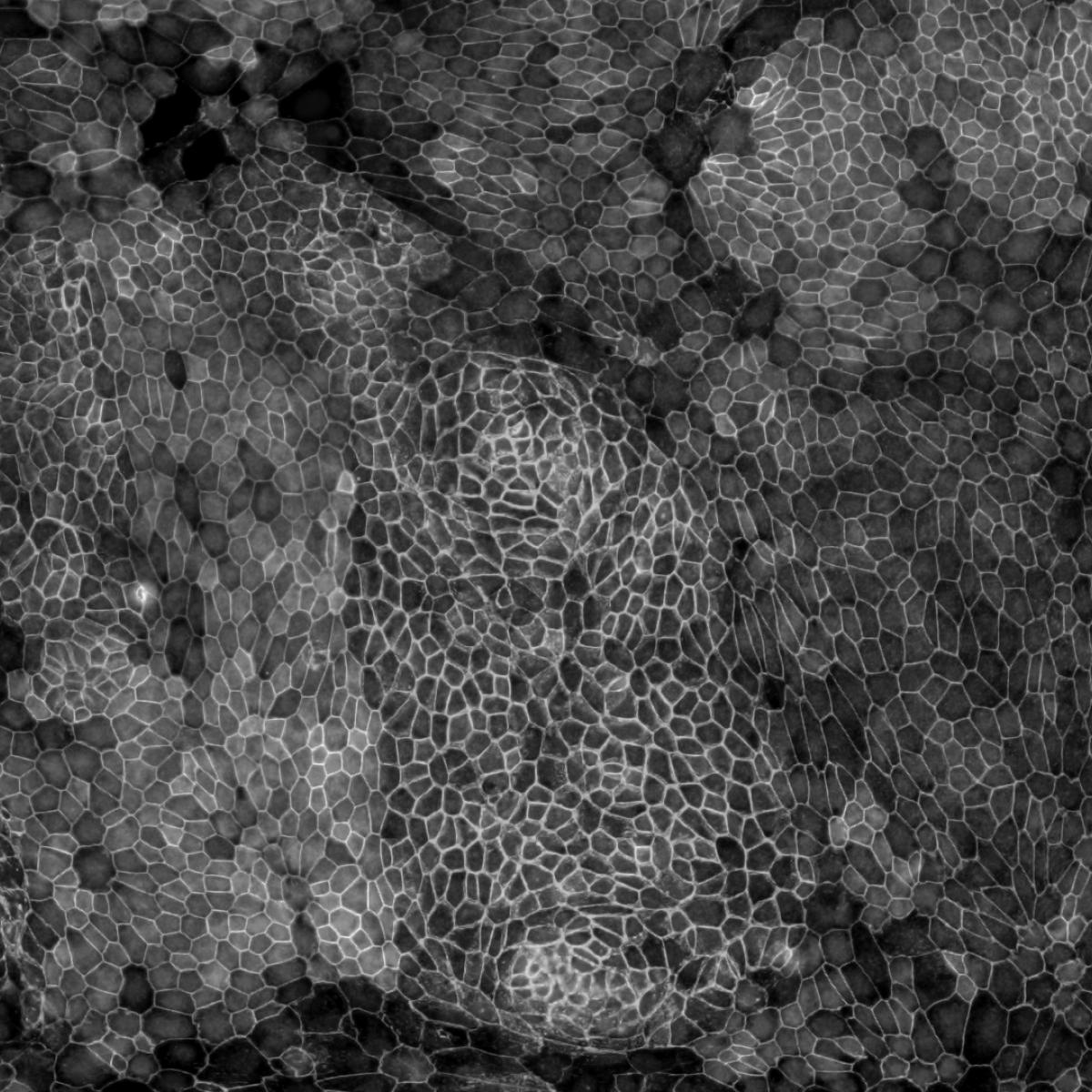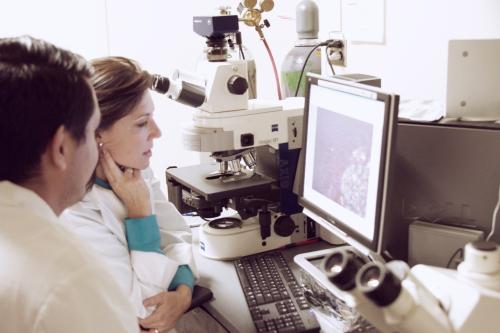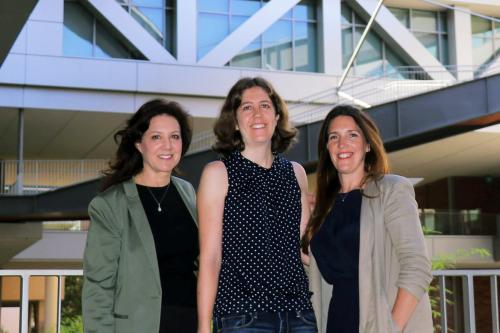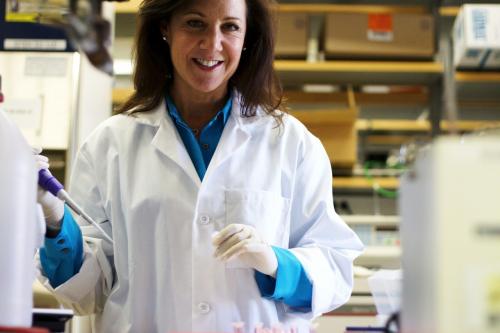
Melissa J. Spencer, Ph.D.
- Professor, Neurology
- Director, Neuromuscular Division, Neurology
- Co-Director, Center for Duchenne Muscular Dystrophy at UCLA

Melissa Spencer, Ph.D., studies the mechanisms underlying genetically-inherited neuromuscular diseases such as Duchenne muscular dystrophy and limb girdle muscular dystrophy. Her ultimate goal is to develop new treatments, including CRISPR gene editing and gene replacement therapies, for these conditions.
Spencer studies the pathways responsible for muscle health and seeks to understand the pathogenic mechanisms that occur in various muscular diseases. Much of her research focuses on Duchenne muscular dystrophy, the most common fatal childhood genetic disease. Duchenne mutations cause abnormally low production of the dystrophin protein, leading to progressive muscle degeneration and weakness.
In collaboration with center member April Pyle, Ph.D., Spencer is currently developing gene therapy approaches that leverage modified viruses such as adeno-associated viral, or AAV, vectors to efficiently deliver nucleic acids to all muscles of the body. She is also working to improve the efficacy of these therapeutic strategies through capsid engineering, which helps enhance on-target gene delivery and reduce off-target gene delivery.
To advance the development of these AAV gene therapies, Spencer is devising methods to address their limitations: AAV-based therapies induce an immune response against the viral vector and thus are limited to single dosing. She is studying the interactions between the immune system and AAV to overcome immune reactions, avoid unwanted side effects and enable the possibility of re-dosing. Working in human tissue and mouse models, Spencer seeks to identify targets to suppress the immune system's response to AAV. In addition, she explores how fibrosis in the muscle negatively influences AAV delivery.
Research Projects
- Developing CRISPR A gene editing technology that enables scientists to remove, add or alter DNA at precise locations in the genome to prevent, treat or cure disease. One component acts as a navigation system that can be programmed to seek out a particular DNA sequence and the other component acts as a pair of "molecular scissors" that can cut two strands of DNA at that location to enable gene modification. CRISPR A gene editing technology that enables scientists to remove, add or alter DNA at precise locations in the genome to prevent, treat or cure disease. One component acts as a navigation system that can be programmed to seek out a particular DNA sequence and the other component acts as a pair of "molecular scissors" that can cut two strands of DNA at that location to enable gene modification./Cas9 gene editing A type of gene therapy that works by delivering genetic material that can directly edit pieces of DNA within a cell. This changes the instructions the DNA encodes for, which ultimately results in an increase or decrease in the production of a certain protein and the restoration of proper cell function. gene editing A type of gene therapy that works by delivering genetic material that can directly edit pieces of DNA within a cell. This changes the instructions the DNA encodes for, which ultimately results in an increase or decrease in the production of a certain protein and the restoration of proper cell function. platforms for Duchenne muscular dystrophy
- Understanding the mechanisms of adeno-associated viral-immune interactions in mice and humans
- Developing gene replacement therapies and enabling drug discovery for limb girdle muscular dystrophy type 2A
- Employing AAV-capsid engineering for precise targeting of muscle and neural stem cells A type of tissue-specific stem cells found in the brain and spinal cord. These cells play a crucial role in the development, maintenance and repair of the brain and nervous system throughout a person's life. neural stem cells A type of tissue-specific stem cells found in the brain and spinal cord. These cells play a crucial role in the development, maintenance and repair of the brain and nervous system throughout a person's life.
- Examining mechanisms of fibrosis Excessive scarring within an organ due to disrupted healing. It can lead to organ dysfunction and is associated with conditions like chronic kidney disease, liver cirrhosis and heart failure. fibrosis Excessive scarring within an organ due to disrupted healing. It can lead to organ dysfunction and is associated with conditions like chronic kidney disease, liver cirrhosis and heart failure. in the setting of muscular dystrophy and its impact on AAV delivery to muscle
-
Post-doctoral Fellowship
- Cellular Immunology, UCLA, 1998
Degree
- Ph.D., Physiological Science, UCLA, 1994
-



